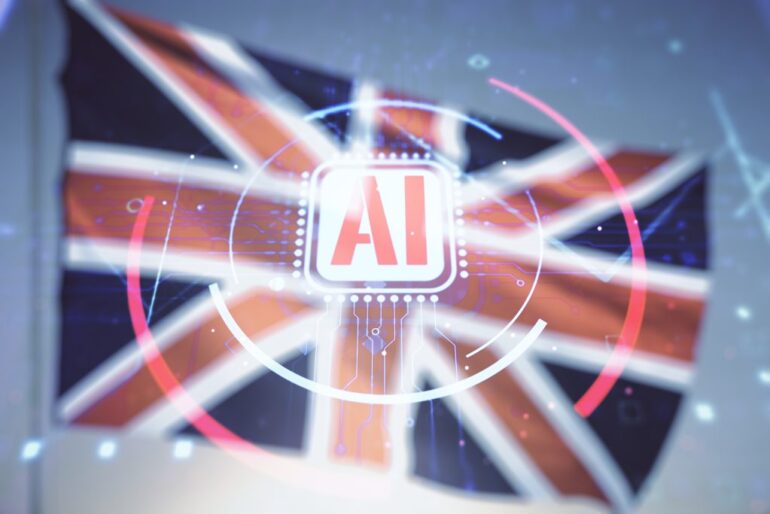TL;DR:
- AI, robotics, and automation have a predominantly positive impact on UK jobs.
- Over 78% of firms using AI reported the creation of new job roles.
- 83% of businesses noted an increased demand for new skills.
- Approximately 69% reported improved job quality due to technology.
- Concerns about AI-induced job losses are tempered by the evidence of job creation.
- Regional inequalities may worsen if automation is not managed thoughtfully.
- Regional innovation readiness plays a crucial role in mitigating disparities.
- The report emphasizes human-centric approaches to technology adoption.
Main AI News:
In a rapidly evolving landscape where the integration of artificial intelligence (AI), robotics, and automated systems has become the norm, a recent study offers a nuanced perspective on their impact on the job market. This comprehensive research, conducted by the esteemed Institute for the Future of Work (IFOW) in collaboration with Imperial College London and Warwick Business School, sheds light on the complex relationship between technology and employment in the United Kingdom.
Over 1,000 UK-based firms were meticulously surveyed regarding their adoption of these cutting-edge technologies over the past three years. Astonishingly, more than 860 of these enterprises confirmed their active engagement with AI and automation. What’s even more remarkable is that a staggering 78% of these companies attributed the creation of new job roles directly to the implementation of these technologies.
The findings extend beyond mere job creation; they encompass the broader spectrum of job quality and skill enhancement. Approximately 83% of the surveyed businesses noted an increased demand for new skill sets among their workforce. Furthermore, an impressive 69% asserted that these technological innovations had measurably improved job quality, even if only by degrees.
Anna Thomas, the Director of IFOW, lauds the report, stating, “This report not only highlights that the adoption of AI is well underway across UK firms, but also that it is possible for this tech transformation to lead to both net job creation and more ‘good work’ – great news as we try to solve the UK’s productivity puzzle.”
The report’s conclusions stand in stark contrast to the sensationalized concerns often associated with AI-induced job losses. As Professor James Hayton, the lead author of the report, aptly puts it, “The challenge is that it’s not quite so interesting to say ‘well, robots are taking our jobs sometimes, but it depends,’ as it is to say ‘in 30 years there will be no jobs at all.’ The evidence we really have about this is that technology tends to create new jobs and upskill existing ones. Yes, it does downskill and disrupt other jobs, but in the long run, there tends to be a positive impact on the economy.”
While 47% of respondents acknowledged that AI and automation had led to the elimination of certain positions within their organizations, a substantial 67% reported the simultaneous creation of new, technologically driven roles.
However, even amidst these optimistic findings, the report raises a critical concern regarding the potential exacerbation of regional inequalities in the UK. The widespread adoption of automation, if not thoughtfully managed, has the potential to deepen regional disparities and erode job quality on a significant scale.
Professor Hayton emphasizes, “Society will have to adjust quickly to these issues, quicker than we’ve ever had to adjust before.” The report underscores the pivotal role played by regional innovation readiness, which is determined by factors such as investment levels in a particular region and the educational attainment of its workforce. Disparities between regions like the south-east and London, which exhibit higher readiness levels, and those in the far south-west or far north-west, are evident.
To mitigate these potential negative consequences, the report advocates for a focus on human resource practices that invest in workers and augment their capabilities through automation, rather than seeking to replace them. “The more you invest in your workforce,” Professor Hayton explains, “the more likely they are to be able to successfully utilize these technologies because they’ve acquired more skills. They become more flexible, more willing to learn, and more confident in the stability of their employment. Consequently, implementing new technology becomes a smoother process.”
Conclusion:
The widespread adoption of AI, robotics, and automation in the UK job market has, on the whole, yielded positive results, with job creation and improved quality being notable outcomes. However, the potential exacerbation of regional inequalities poses a significant challenge. To thrive in this evolving landscape, businesses and policymakers must prioritize investing in their workforce and fostering a human-centric approach to technology adoption to ensure a balanced and prosperous market for all.

